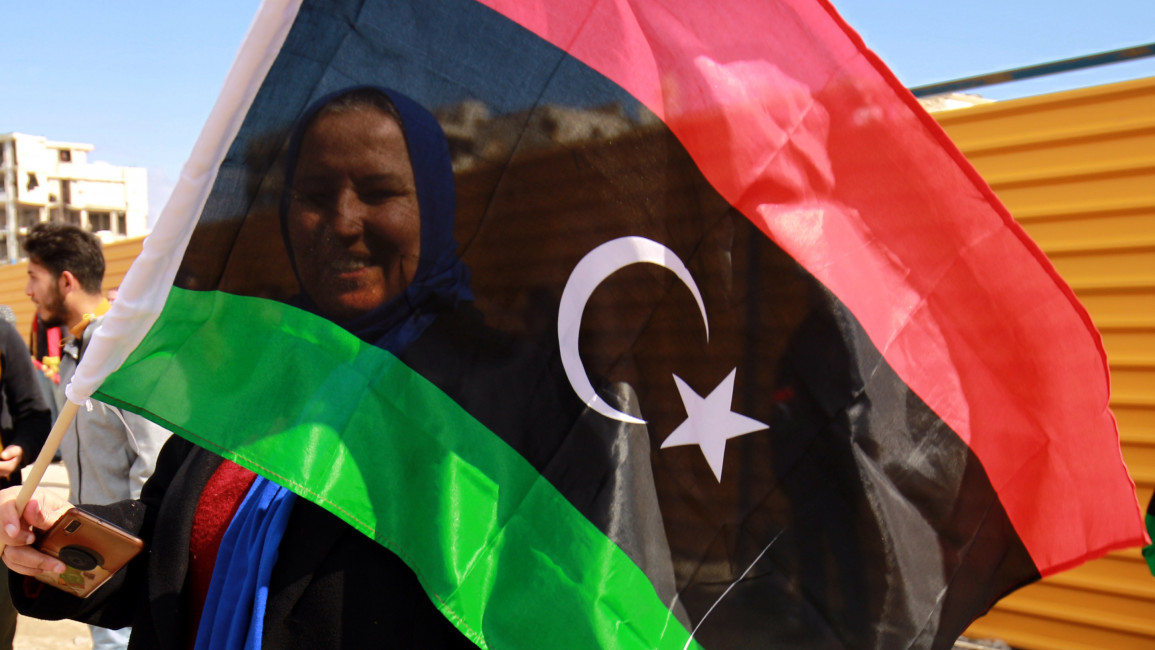Libya opens registration for election hopefuls
Libya on Monday stepped up preparations for landmark elections, opening registration for candidates in presidential and parliamentary polls as the country seeks to move on from a decade of war.
Libya's first ever direct presidential poll, with a first round on December 24, is the climax of a process launched last year by the United Nations to draw a line under years of violence since the revolt that toppled dictator Moamer Ghadaffi in 2011.
But despite a year of relative peace following a ceasefire between eastern and western camps, the process has been overshadowed by wrangling over the legal basis for the votes and the powers of whoever wins.
That has sparked fears of a return to violence in the event of a contested result.
Candidates are able to lodge applications at offices of the High National Electoral Commission in the three main cities in Libya's west, east and south until November 22, the HNEC said Sunday.
Parliamentary candidates have until December 7 to do so.
"Everyone is worried about respect for the election results," Anas El Gomati, director of Libya-based think tank the Sadeq Institute, told AFP.
He cited perceived "fragile military conditions on the ground and lack of preparation to organise free and fair elections in a state divided between rival military factions".
Haftar, Ghadaffi bids?
Speculation has been mounting for months over possible presidential bids by eastern-based military chief Khalifa Haftar and by Kadhafi's son Seif al-Islam, both deeply divisive figures.
Former interior minister Fathi Bashagha has confirmed he will run, while others expected to do so include diplomats Aref al-Nayed and Ibrahim Dabbachi, as well as comedian Hatem al-Kour.
The opening of candidacies "is the real start of the electoral process," the head of the electoral commission Imad al-Sayeh told reporters on Sunday.
Both presidential and parliamentary elections are slated for December 24, but in early October, parliament split the dates of the vote by postponing legislative elections until January.
However, foreign powers have been pushing hard for both elections to be still held on the same date, as agreed at UN-led talks last year.
More than 2.8 million of Libya's seven million residents have registered to vote.
International powers have been pushing elections as a key part of a roadmap out of years of violence between an array of Libyan and foreign armed groups, many backed by overseas powers.
But a presidential elections bill signed in September by the speaker of the eastern-based parliament, Aguila Saleh, has sparked anger among critics who say it bypassed due process and favoured a run by Haftar.
Results rejected?
French President Emmanuel Macron is hosting an international conference later this week aimed at drumming up support for the elections, with US Vice President Kamala Harris on the guest list.
But many worry that the security situation will not allow a free and fair vote, while a disputed outcome could spark a return to conflict.
Haftar is widely expected to stand for the presidency, but is despised by many in western Libya for the devastating offensive he launched against the capital in 2019.
In early October, parliament split the dates of the vote by postponing legislative elections until January.
Just over two weeks later, Prime Minister Abdulhamid Dbeibah promised the vote would be held "on time".
As the bickering over the election timetable has dragged on, low-level fighting between rival militias has punctured the ceasefire.
"Irrespective of the outcome, the election results will be rejected by one side or the other and destabilise the power balance, leading to violence," Gomati of the Sadeq Institute think tank said.

![Trump's warm greeting to Netanyahu contrasted with Kamala Harris's critical reception [Getty]](/sites/default/files/styles/image_330x185/public/2024-07/GettyImages-2162908988.jpg?h=69f2b9d0&itok=OLc5dL88)
![The brutal assault on Khan Younis has killed dozens and displaced thousands more [Getty]](/sites/default/files/styles/image_330x185/public/2024-07/GettyImages-2162526709.jpg?h=d3eda8cf&itok=n5N-o8p5)
![Members of the Algerian delegation threw roses into the Seine [Getty]](/sites/default/files/styles/image_330x185/public/2024-07/GettyImages-2162980872.jpg?h=199d8c1f&itok=h_3o_TOL)